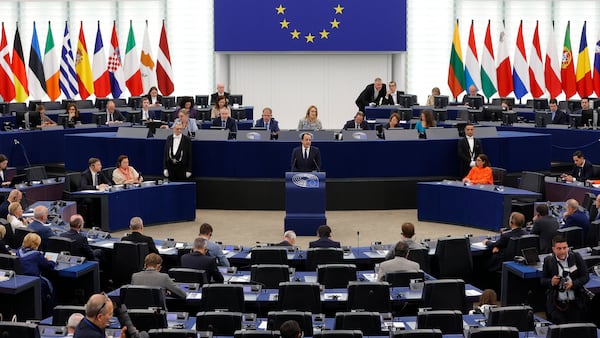- Blockchain advocates in Europe have long fought to prevent a Data Act provision on smart contracts from applying to DeFi.
- However, the European Parliament just passed the Data Act with a majority.
- Whether the Data Act will affect blockchain developers in the EU depends on how the new rules are interpreted by regulators.
The European Parliament has passed a landmark Data Act critics fear could drive DeFi developers out of the continent.
The law includes an article on smart contracts that has drawn the ire of the blockchain sector for its “lack of clarity.”
Nonetheless, the act was passed on Thursday morning, when 481 out of 583 parliamentarians voted in favour of the legislation that aims to form a single market for data sharing across the bloc.
The Data Act requires that smart contracts used in sharing data between smart devices and third parties — like manufacturers or cloud service providers — be able to be halted or interrupted.
This goes against the often immutable nature of the smart contracts typically used in blockchains that underpin decentralised finance, a market that has $44 billion in total value locked, according to DefiLlama data.
While these Data Act requirements were designed to apply to the Internet-of-Things, the blockchain industry sees a threat that these harsh provisions could spill over if lawmakers don’t define their scope in the fine print.
The blockchain sector rallied against the requirements for the past year, including via a broad industry open letter that drew signatures from crypto heavyweights such as Coinbase and Polygon.
Their pleas to leave blockchain out were heard but mostly ignored by lawmakers, however, who have said that the smart contracts rules were not designed with the blockchain industry in mind.
While thousands of lobbyists flooded policymakers’ inboxes from the many industries impacted by the Data Act, EU lawmakers told DL News they were not too concerned since the word “blockchain” was never mentioned in the proposal or on their agenda to begin with.
“My goal wasn’t even to regulate smart contracts unless there was a real intimate connection to the law that I was basically writing,” Damian Boeselager, a member of the European Parliament from the Volt Europa political party who took part in the negotiations, previously said.
With the legislative text approved, whether a spillover could take place now depends on how regulators interpret it when the law is enforced.
But first, the regulation will need to also be adopted by the bloc’s member state ministers in the European Council.
Then, once published into law, the implementation details will need to be ironed out by Europe’s organisations responsible for making sure industrial laws are applied equally across the EU.
Not on their agenda
While legislators negotiated the Data Act, the industry fought against “the lack of clarity on the application of essential requirements for smart contracts and the need to develop clear rules for their development and deployment in Europe,” Tommaso Astazi, head of regulatory affairs at trade association Blockchain for Europe, told DL News.
“The real impact the regulation might have on the wider Web3 industry will depend on the forthcoming ... process to develop common standards and how European standardisation bodies interpret the text,” Astazi said.
For Astazi, the advocacy efforts on behalf of the Data Act show a need for closer cooperation between the blockchain sector and policymakers as the next stage of implementing the Act approaches.
There is an “imperative need for closer dialogue between the industry and policymakers to ensure regulatory clarity and protection of innovation, especially when dealing with such innovative technologies and tools,” Astazi said.
Inbar Preiss is DL News’ Brussels-based regulation correspondent. Contact her at inbar@dlnews.com.







